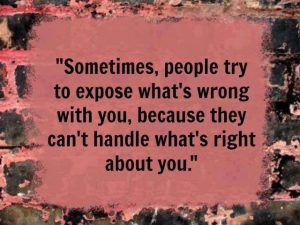Big or small lies are lies
White lie is not dangerous, in sense it doesn’t harm anybody; it’s a trivial lie, especially the one told to avoid hurting someone’s feelings. The average person tells 4 lies a day or 1460 a year; a total of 87,600 by the age of 60. Isn’t that scaring? These can be white lies, big lies, and serious ones spoken to cheat, to please, to get favor anything. And, we ignore the amount of energy we waste on lying. Think of it. Cooking up stories for reaching late for a function, to office, to school, college; complimenting somebody’s dress even if it doesn’t suit the person; praising somebody when you don’t want to….the list is unending.
We think that relations last only if we don’t always say exactly what we’re thinking. We have to disguise our feelings, to trick, to smile sometimes when we want to shout, to be polite when we want to punch. In short, we keep lying. I think people who find themselves most deceived by the lies of lovers are the ones who have the most unrealistic and impractical expectations about truthfulness. And the people who are most inclined to believe the lies they shouldn’t, are the ones who tell themselves the biggest lies….
When we say the truth or talk factually it does not require us to remember anything; it requires no further work on our part. When we tell the truth, we don’t need to keep a track of it. On the other hand, lies need to be protected. And, the truth is lies beget other lies. Wisdom says once you stop telling lies the universe starts believing you. The universal energy starts caring for you because every word out of your mouth is truth.
But, we live in a society that conditions us to lie by telling us that in many situations lies are justified. The secretary tell visitors that “boss is busy” when in fact he is yapping with a friend on phone; the firms exaggerate the qualities of their products; job applicants fake their SWOT analysis; doctors give false diagnosis to their patients for heftier bills; lawyers lie in the court blatantly to save wrongdoers in society. And, governments promises new hope to its citizens while continually deceiving them. Leonard Saxe, a PhD and a polygraph expert and professor of psychology at Brandeis University, says, “Lying has long been a part of everyday life. We couldn’t get through the day without being deceptive.” Polygraph is a machine designed to detect and record changes in physiological characteristics, such as a person’s pulse and breathing rates, used especially as a lie detector.
 Check this out: while talking to a close friend, how many of us tell only our part of a story? Do we even once bother to tell the other side of the story? Don’t we rephrase the conversations we had with third parties? Do we even think once what impressions we might create about the third persons in our friend’s mind? Basically, while lying so many things, don’t we manipulate our friend to say what we want to hear? And isn’t it foolish when we control a response by shading the truth, inadvertently we create an alternate, a false reality between us and another person.
Check this out: while talking to a close friend, how many of us tell only our part of a story? Do we even once bother to tell the other side of the story? Don’t we rephrase the conversations we had with third parties? Do we even think once what impressions we might create about the third persons in our friend’s mind? Basically, while lying so many things, don’t we manipulate our friend to say what we want to hear? And isn’t it foolish when we control a response by shading the truth, inadvertently we create an alternate, a false reality between us and another person.
We talk lies in many ways; by omitting facts, by exaggerating, lying to protect self, gossip, or sometimes lying for the sake of it.
People tend to exaggerate to hide their insecurities about themselves. By exaggeration, a person may try to preserve a certain image of him for the sake of seeking approval from others. However, when you exaggerate or don’t represent yourself honestly, you are left feeling like a fraud, which further hurts your self-esteem. When people exaggerate their skills, their talent, contacts, qualifications, happiness, reputation, it only leads them in deep trouble because their actions fail to match their words. It’s difficult to hide results; it may be a broken promise, a missed meeting or poor performance. Exaggerating reckons a person’s dishonesty.
We all have an inner critic in us who coaches us to say things which we don’t intend to. This inner coach makes us apprehensive. This critic often damages things instead of setting them right. It makes us vulnerable. It makes us downplay our role for trivial things. It makes us act sometimes rude, sometimes generous, and sometimes overtly friendly. It drives us away from our real goals. Keeping the little ghost (our inner coach) in check is necessary.
When people gossip they are full of white lies, serious lies, big lies, foul lies, and gossip has no limits. We don’t really think when we gossip and it’s everywhere. In every household, office, gym, school, college, coffee house – go anywhere somebody or the else is busy gossiping. We don’t realize that gossip breeds pessimism and distrust. It destroys goodness in the world. Why can’t people communicate directly? Gossip is infectious.
 “Three things cannot be long hidden: the sun, the moon, and the truth” this has its origins in an actual Buddha quote. You can take chances on the people you care about by being a lot more honest and direct with them. You can find healthy and considerate ways to express yourself and to be sensitive to the other person’s sense of reality. The truth may not always be easy to hear or said, but in the long run it might save elegance and serenity. And, you will earn a lot more trust and respect from the people whose opinion matters to you the most. Finally, this world may not be perfect, nor is the truth always easy to take, but you can find peace and freedom if you take a chance and create a world around you that is real.
“Three things cannot be long hidden: the sun, the moon, and the truth” this has its origins in an actual Buddha quote. You can take chances on the people you care about by being a lot more honest and direct with them. You can find healthy and considerate ways to express yourself and to be sensitive to the other person’s sense of reality. The truth may not always be easy to hear or said, but in the long run it might save elegance and serenity. And, you will earn a lot more trust and respect from the people whose opinion matters to you the most. Finally, this world may not be perfect, nor is the truth always easy to take, but you can find peace and freedom if you take a chance and create a world around you that is real.













































